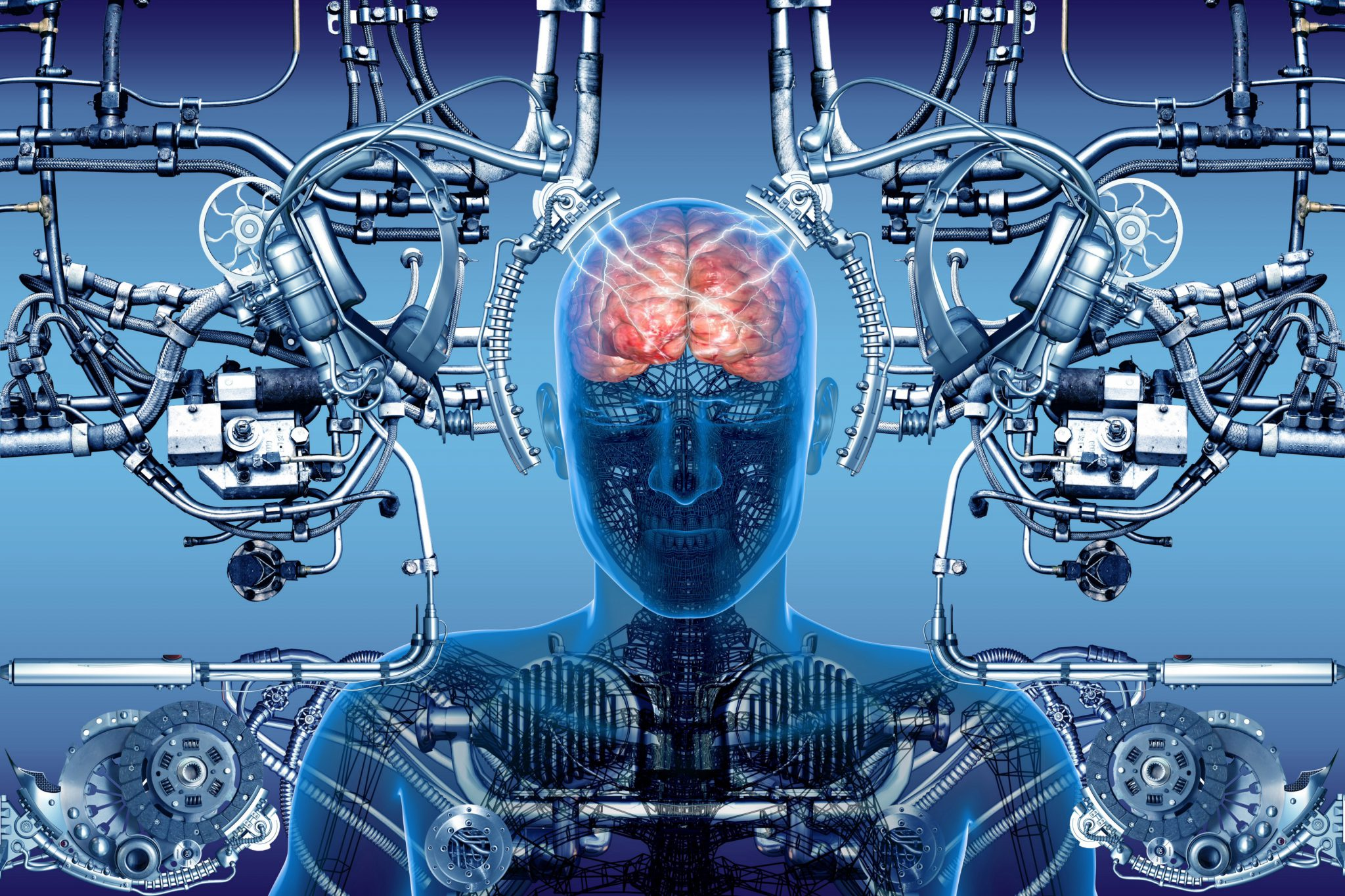Bill Gates AI is a hot topic, especially now that the tech pioneer has released his new memoir, “Source Code.” In the book, he discusses pivotal moments in his life, including his childhood fascination with artificial intelligence and the founding of Microsoft, which transformed the tech landscape. Gates reflects on how his curiosity in technology drove him to become a leader in the industry, and how AI continues to redefine our future. With insights gathered from his experiences, Gates underscores the beauty of math and creativity that fuels innovations like AI. As he shares this journey, readers can expect to uncover valuable lessons intertwined with the rich tapestry of Microsoft history, reminding us of the endless possibilities that curiosity can unlock.
In the world of modern technology, discussions surrounding artificial intelligence are becoming increasingly pertinent, with Bill Gates frequently at the forefront. His latest written work, along with his reflections on the development of Microsoft, sheds light on the profound impact of curiosity on technological advancements. This narrative not only chronicles his journey but also addresses the transformative nature of emergent technologies. Gates’ experiences serve as a reminder of how foundational ideas can lead to revolutionary changes in society. As he delves into the intricacies of AI, readers are invited to join him in exploring the intersection of innovation and ethical responsibility.
The Rise of AI and Its Implications
Artificial Intelligence (AI) has seen rapid advancements over the last few decades, transforming industries and reshaping how we interact with technology. Bill Gates, a prominent figure in the tech world, has expressed his mixed feelings about this powerful tool. While AI promises efficiency and innovative solutions, Gates acknowledges its potential downsides, such as ethical concerns and job displacement. This duality reflects a broader apprehension in society regarding the widespread adoption of AI technologies. As AI systems grow more sophisticated, understanding their implications becomes increasingly crucial for both developers and users.
AI’s impact spans numerous sectors, including healthcare, education, and transportation, enabling breakthroughs like predictive analytics and personalized learning experiences. However, as Gates pointed out, the pace of development raises questions about accountability and safety. The rapid integration of AI into daily life—often without fully understanding its capabilities—can lead to unforeseen consequences. Striking a balance between embracing technological progress and managing its risks is essential for ensuring that AI serves humanity positively.
Bill Gates and the Intersection of Curiosity and Technology
In his recent memoir, “Source Code,” Bill Gates emphasizes the importance of curiosity and innovation in technology. His journey from a curious young student with a passion for math to a leading figure in the software industry showcases the value of exploring new ideas and taking risks. Gates notes that fostering curiosity among the youth could ignite a similar drive for innovation in future generations. His experiences at Harvard, where he faced academic challenges and engaged with brilliant minds, further fueled his desire to pursue a path in technology, ultimately leading to the founding of Microsoft.
Gates’ advocacy for curiosity in technology resonates with today’s rapidly evolving tech landscape. He believes that encouraging young people to explore their interests can lead to significant advancements in fields like artificial intelligence and software development. By creating environments that promote inquiry and experimentation, aspiring tech enthusiasts can develop the skills necessary to tackle complex problems and innovate effectively. This message is particularly relevant as we face unprecedented technological changes that require fresh perspectives and adaptable thinkers.
Reflections on Microsoft History
Bill Gates’ reflections on his time at Microsoft offer insight into the company’s monumental impact on the tech industry and society at large. Founded in 1975, Microsoft grew from a small startup to a multi-billion dollar enterprise, revolutionizing software development with products like Windows and Office. Gates describes the initial challenges he faced, including competition and the need to continually innovate to stay relevant. His memoir captures these formative experiences, showing how curiosity and perseverance played crucial roles in his journey.
The history of Microsoft is intertwined with advancements in technology that have changed how we work and communicate. Gates’ vision for a computer on every desk inspired countless innovations, including the rise of personal computing. As he navigated the challenges of leading a tech giant, he remained acutely aware of the need for ethical stewardship in technology. Gates emphasizes that understanding the social impact of software is as important as creating it, a principle that holds true for today’s tech pioneers.
The Complexity of Technology and Its Youth Impact
In a recent discussion, Gates expressed concern over the effects of technology on the youth, particularly in the context of social media and constant connectivity. He highlighted the importance of establishing healthy boundaries for the younger generation, reflecting a parent’s perspective shaped by his own experiences. Recognizing that technology can enhance learning but also distract, Gates advocates for a balanced approach that teaches young people how to use technology responsibly.
This focus on moderation is essential, as children are often overwhelmed by the digital landscape. While technology offers remarkable learning tools, excessive exposure can lead to negative outcomes like reduced attention spans and increased anxiety. Gates’ reflections serve as a reminder that fostering curiosity should go hand in hand with teaching critical engagement strategies to help young people navigate the complexities of modern technology.
Curiosity in Technology: Key to Future Innovation
Gates argues that fostering curiosity is vital for future innovations in technology, citing his own early experiences with computer programming and mathematics. His memoir details how a desire to explore the unknown paved the way for his groundbreaking work. Encouraging curiosity allows individuals to tackle challenges in creative ways, often leading to unexpected solutions and advancements in fields like artificial intelligence. Gates believes that nurturing this trait in future generations will be essential for continued progress in technology.
Moreover, Gates underscores the role of educational institutions in cultivating a culture of curiosity. By allowing students to question, experiment, and pursue their interests without fear of failure, schools can create a generation of innovators equipped to address today’s complex challenges. This shift towards curiosity-driven learning is crucial for harnessing the full potential of emerging technologies and ensuring they benefit society as a whole.
The Scary Yet Promising World of AI
Bill Gates acknowledges the duality of artificial intelligence—that it is both promising and a little scary. His recent remarks on AI highlight a deep-seated hope that these technologies can address significant global issues, such as shortages in healthcare and education. Yet, the rapid pace of AI development raises concerns about the ethical implications and the potential for misuse. Gates urges stakeholders to engage in open discussions about the future of AI and the responsibilities that come with its advancement.
The concept of ‘free intelligence’ that Gates mentions portrays a vision where AI enhances productivity and fuels innovation across industries. However, he reiterates the importance of implementing safeguards to prevent adverse outcomes. Striking a balance between leveraging AI for societal benefit while managing its risks is essential for responsible progress. Gates’ optimistic outlook challenges us to approach AI not only as a technical challenge but as an ethical one, emphasizing the need for thoughtful regulation and the cultivation of informed public discourse.
Gates’ Perspective on Technology’s Evolution
Reflecting on the evolution of technology, Gates expresses nostalgia for an earlier, less complicated era defined by optimism. He contrasts it with today’s tech-driven world, where concerns about negative implications dominate public discourse. This shift in perception calls for a reassessment of our relationship with technology, as the rapid advancement of tools like artificial intelligence necessitates a cautious yet hopeful approach. Gates believes that the initial premise of technology as a force for good still holds true, despite present concerns.
Today’s society faces the challenge of balancing technological benefits with ethical considerations. As Gates points out, it’s crucial for innovators and consumers alike to remember that technology—at its core—should serve to enhance human experience and connection. By fostering an environment that encourages critical thinking and a responsible use of technology, we can shift the narrative from fear to one of empowerment and potential.
Bill Gates on the Future of Education and Technology
In his discussions, Gates emphasizes the crucial role of education in shaping the future of technology. He advocates for educational frameworks that encourage exploration and innovation, vital for preparing future leaders in tech. Gates believes that integrating subjects like coding and computational thinking into curricula can inspire curiosity and prepare students for an increasingly digital world. His focus on education reflects a desire to empower the next generation to not just consume technology but to create it.
As we forge ahead into a future dominated by artificial intelligence and advanced technologies, the educational system must adapt. Gates suggests that fostering a growth mindset—where students feel motivated to face challenges and learn from failures—is key to success in tech fields. By promoting a hands-on, project-based learning approach, schools can better equip students to tackle complex problems and drive innovation, ensuring that they thrive in an unpredictable landscape.
Navigating Ethical Challenges in Technology
As technology permeates all aspects of life, navigating ethical challenges becomes a priority. Gates emphasizes the necessity of incorporating ethical considerations in the development of technological solutions. The rapid progression of artificial intelligence, for instance, poses significant moral questions around privacy, security, and bias. Gates warns that without establishing clear ethical guidelines, society risks creating solutions that exacerbate inequalities or compromise individual rights.
Engaging stakeholders from various sectors, including educators, policymakers, and technologists, is essential for developing a comprehensive ethical framework surrounding new technologies. Gates advocates for continuous dialogue and collaboration to address these pressing issues head-on. By fostering an inclusive conversation about the ethical implications of technology, society can better navigate the complexities of modern innovations and ensure they serve the broader good.
Frequently Asked Questions
What are Bill Gates’ views on artificial intelligence and its impact on society?
Bill Gates believes that artificial intelligence (AI) has the potential to revolutionize various sectors such as medicine and education. In discussions surrounding his memoir, ‘Source Code’, he expressed optimism that AI, or ‘free intelligence’ as he calls it, could help address critical shortages in these fields. However, Gates also acknowledged the frightening pace of AI advancement, highlighting the need for a cautious approach to its integration into daily life.
How does Bill Gates’ memoir ‘Source Code’ relate to his thoughts on technology and AI?
In ‘Source Code’, Bill Gates reflects on his journey from a curious kid with a passion for computing to a leader in the technology sector. His insights into AI mirror the curiosity he encourages in readers, emphasizing the importance of trying new things while also being aware of the implications of technology. Gates shares his experiences during the early days of Microsoft and how those shaped his current perspective on the role of AI in society.
What role did curiosity in technology play in Bill Gates’ career as outlined in ‘Source Code’?
Curiosity in technology has been a driving force throughout Bill Gates’ career, as detailed in his memoir ‘Source Code’. Gates credits his parents for nurturing his adventurous spirit, which fueled his passion for programming and led to the founding of Microsoft. His belief in the importance of allowing children to explore and experiment with technology aligns with his positive outlook on AI and its potential to solve real-world problems.
What was the significance of Bill Gates dropping out of Harvard in relation to Microsoft and AI?
Bill Gates’ decision to drop out of Harvard was pivotal in his journey to co-found Microsoft. This bold move was based on his determination to seize opportunities in the burgeoning field of personal computing. Gates’ early experiences with coding and technology laid the foundation for his later innovations in software and now inform his views on artificial intelligence, which he sees as an extension of that same pioneering spirit.
How does Bill Gates view the current state of young people’s relationship with technology and AI?
During discussions after the release of ‘Source Code’, Bill Gates acknowledged concerns about young people’s dependence on technology and their engagement with AI. He noted that while technology offers tremendous benefits, excessive use can lead to negative outcomes. Gates’ own parenting choices reflect his awareness of these challenges, as he managed his daughter’s introduction to smartphones cautiously within the context of a tech-savvy upbringing.
In what ways does Bill Gates express nostalgia for earlier technological advancements while discussing AI?
Bill Gates expresses nostalgia for the ‘techno-optimism’ of the early computing era, as he recalls positive reactions to innovations like Microsoft Word. He contrasts this with today’s more cautious view on technology, particularly AI, remarking that while tools can be misused, the initial intention behind technology was to enhance productivity and creativity. Gates’ reflections in ‘Source Code’ capture both his hopes and apprehensions about the future of technology and AI.
| Key Points | Details |
|---|---|
| Bill Gates’ Memoir Release | Gates discusses his memoir ‘Source Code’, covering his experiences growing up, founding Microsoft, and his views on curiosity and education. |
| Journey at Harvard | Gates arrived at Harvard before a computer science program was established, initially avoided computer-related studies, and faced academic challenges. |
| Founding Microsoft | Dropped out of Harvard to co-found Microsoft with Paul Allen, leading to major industry developments including contracts with IBM and software applications like Word and Excel. |
| Concerns about Technology | Gates expresses nostalgia for earlier tech optimism but recognizes current concerns about technology’s impact on youth and productivity. |
| AI Predictions | Gates believes AI can address shortages in key sectors but acknowledges its rapid advancement as a source of uncertainty. |
Summary
Bill Gates AI has highlighted the challenges and exciting potential of technology throughout his career. In his recent discussions, he reflects not only on his own journey but also on the future impact of AI. Gates recognizes the importance of curiosity and experimentation in education, alongside an understanding of the need for responsible tech use. As AI continues to evolve, his insights serve as a guiding light for navigating its complexities.




